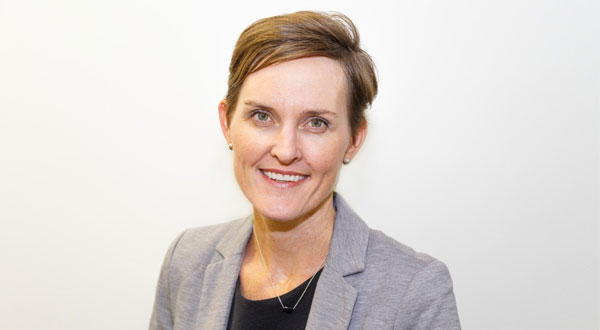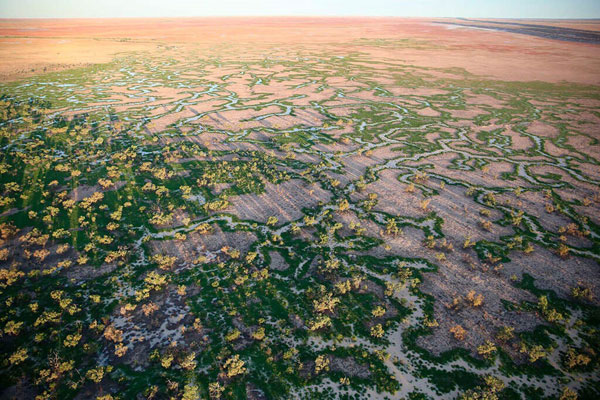31 January 2019

Dalene Wray
Managing Director, OBE Organic Australia
Non-Executive Director, Council for Australian Arab Relations, DFAT
Bachelor of Applied Science (Medical Radiations)
An adventurous spirit combined with deep family roots in Australia’s outback have led Dalene Wray on a career path that has taken her around the world and back.
Now her international trade experience is proving to be a gamechanger for OBE Organic, a marketing and export organisation founded and owned by outback Australian organic cattle farmers. Dalene grew up in a multigenerational cattle family in Birdsville, South West Queensland, where her family settled in 1885. Following in her father’s footsteps she went to boarding school in Adelaide, before studying radiography at UniSA.
“On graduation I worked for a year and a half as a Radiographer in Toowoomba then Broken Hill before moving to the UK to work in various hospitals around Britain, and then Nice, France, to work as a European tour guide for three years,” she says.
“At 27 I had been living away from home for some time by then and my father tapped me on the shoulder and said, ‘isn’t it time to come home’?”
This return to Australia was the catalyst for the beginning of Dalene’s transformative work with OBE Organics, which is chaired by her father.

“OBE was founded in the early 90s in a little outback town called Thargomindah by a collective of organic cattle farmers in the region,” she says.
“When I started there was just one other person working for OBE, we’ve now grown to 10 full-time employees in an office based in Brisbane.”
When OBE was founded, they were Australia’s first and only premium organic beef supplier, “raising cattle exactly the way nature intended”. Now, OBE Organic’s free-range production operation is spread over seven million hectares of grazing land, located primarily in the Channel Country in central Australia – about the area of Tasmania.
OBE’s natural ethos and unique approach to farming is both good for the cow and the consumer.
“Our cattle are grazing land that has never been farmed. The grasses the livestock eat are the same grasses that have been growing there for thousands of years.

“The animals choose their diet. With land equal to one square kilometre per cow we are talking about vast, vast paddocks. The animals get to use their intellect to decide what they need rather than have humans decide for them. They look after themselves and are only occasionally interacted with, so they have the benefit of a more natural cycle of life.”
The OBE Organic suppliers approach to valuing the land and respecting their animals is reflected in Dalene’s work. She has introduced a sustainability program that includes a Reconciliation Action Plan and support for the female economy.
“To my knowledge we were the fourth agribusiness in Australia to have a Reconciliation Action Plan; we’re really proud of that,” she says.
“We have a supply chain that is unique. It produces a product that is highly valued from New York to Hong Kong to Dubai to Riyadh, and many places between, and we wouldn’t have this product if the land hadn’t been cared for by Aboriginal Australians for centuries before Europeans arrived.
“Over the years there have also been a lot of Aboriginal Australians who have worked, and continue to work, on the properties we source livestock from. We need to acknowledge their contribution and talk about why it is so important. So we’re also sharing our experience widely to show what is possible and encourage other companies to adopt reconciliation plans.”
Shortly after taking the plunge to work for OBE full-time, Dalene moved to Beijing and then Hong Kong, also opening up new trade partnerships with the Middle East. Five years later she returned to Australia. She took up the role of Managing Director for OBE Organic in 2017.
Her work has been gaining attention ever since. She’s also challenging some long held mind-sets along the way, and joining the woment trailblazing a path in Australia’s agribusiness industry. “This year I became the first female to win the Queensland Country Life Beef Achiever Award,” she says. “I’m also one of the first young people to win it and I’ve never worked in a stockcamp, so I’m not the typical winner of this award.”
This year she was also awarded the Advance Global Australian Award for Food and Agriculture; as well as winning the Chief Executive Women AusTrade Women in Export Scholarship to attend Harvard’s Executive Business School in Boston.
In 2017 Dalene was also appointed to the board of the Department of Foreign Affairs and Trade’s Council for Australian-Arab Relations (CAAR).
“I think that there is a perception that the Middle East is just too far away to form business ties,” says Dalene, who was recently appointed Deputy Chair of the Council. “Each year CAAR administer a grant program. We are incredibly proud of the outcomes which the grantees are achieving.
“A great example is Lifesaving Victoria, which provided expertise to Royal Lifesaving Bahrain. The project has been immensely successful and soon in 2019 Australian-trained local lifesavers will be patrolling waterways there.

Dalene also recently visited Mongolia at the request of the Food and Agriculture Organization of the United Nations to assess the opportunities for Mongolian production of organic beef.
“We were a good fit as they wanted to learn from someone with similar issues in their early set up – a company that took things that looked like adversity like a very remote location, extreme weather, limited access to telecommunications and infrastructure, and turned it into a positive.”
When asked if she thinks OBE’s work has a flow on effect in the agriculture industry she says she hopes so – but this isn’t just a wish. Dalene uses her building profile to challenge the disparities and widely spread issues related to the agriculture and food trade.
“One of the things I would like to see improve is the reduction of technical trade barriers. There is so much opportunity to solve huge world issues by improving these systems – things like waste and food security – big critical issues that nations around the world are experiencing.
“Old policies that haven’t been updated to reflect scientific evidence and changing political landscapes lead to unbelievable waste in food and agriculture export. I think the world would be a better place if these issues were resolved.”
To learn more about OBE Organic’s mission to positively impact the health of families around the world visit www.obeorganic.com or follow Dalene ON Twitter at @DalWray.



